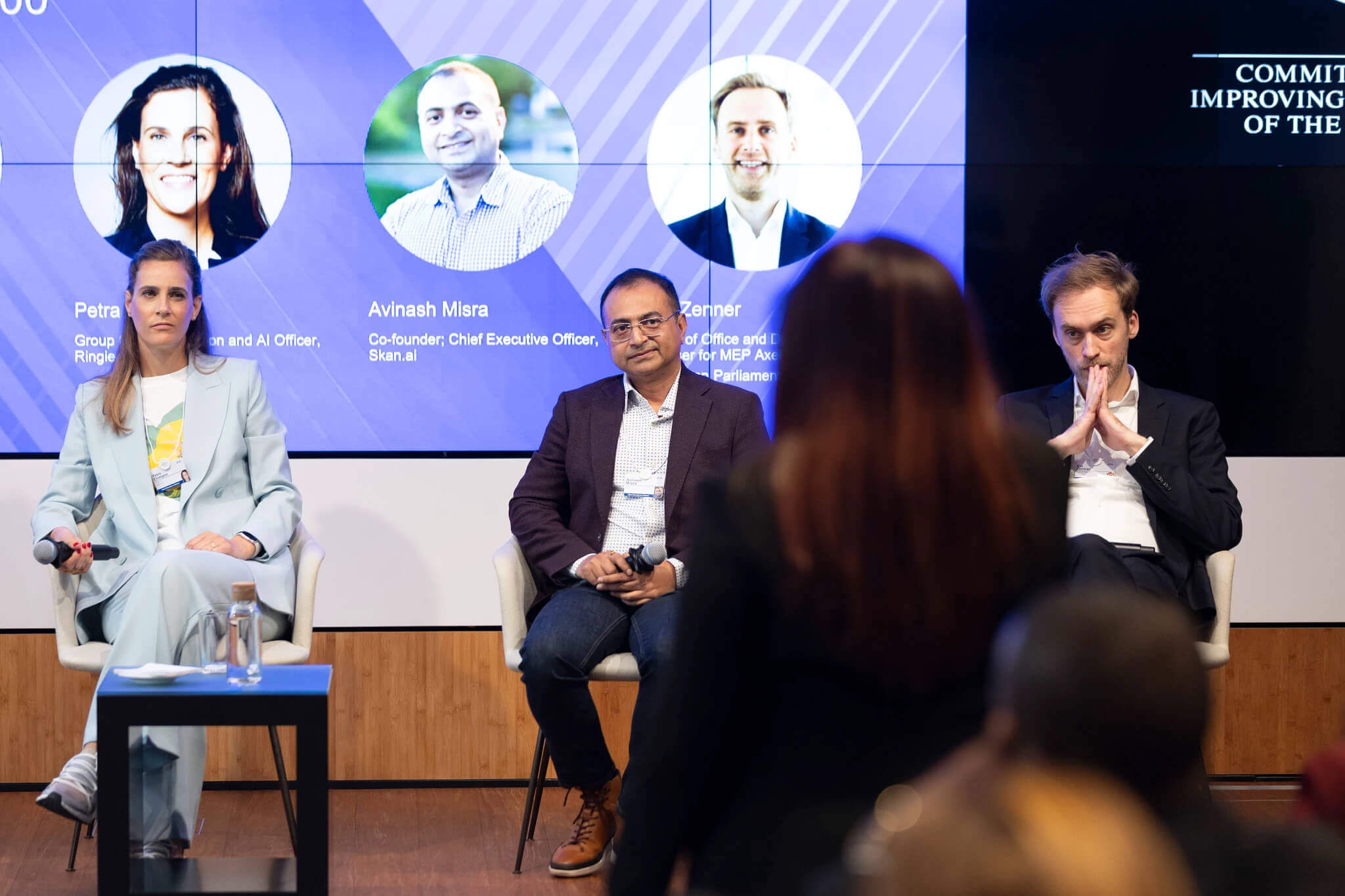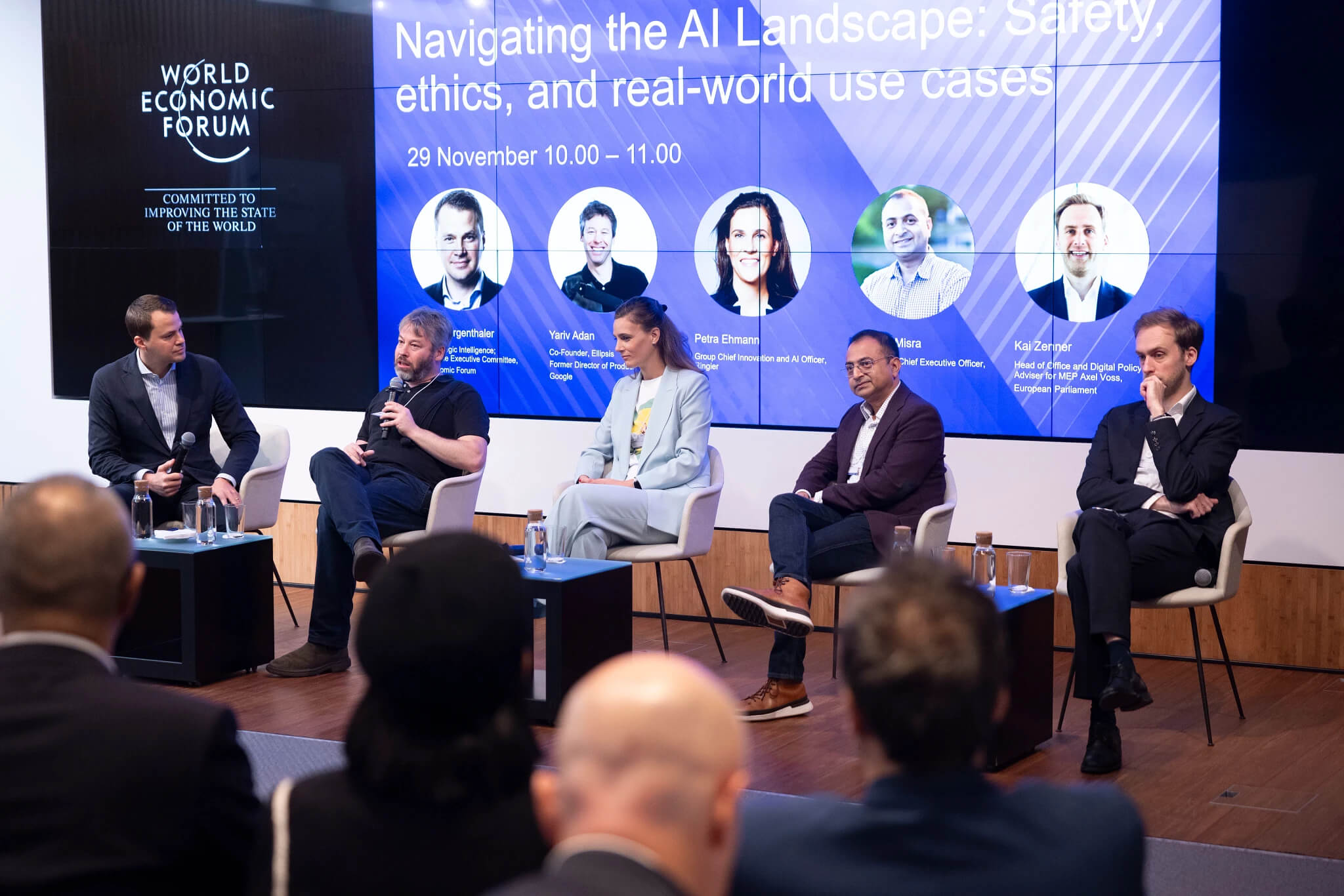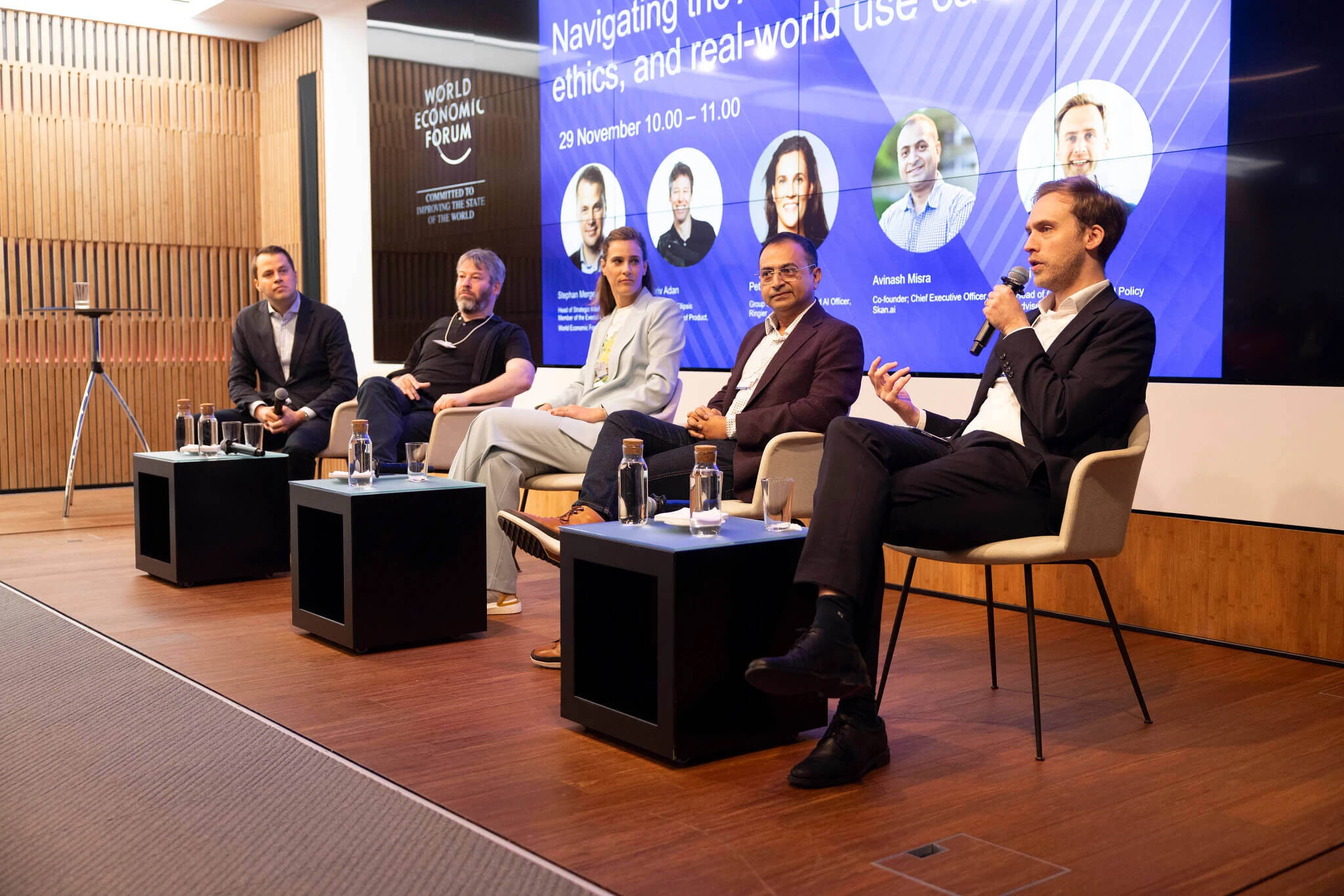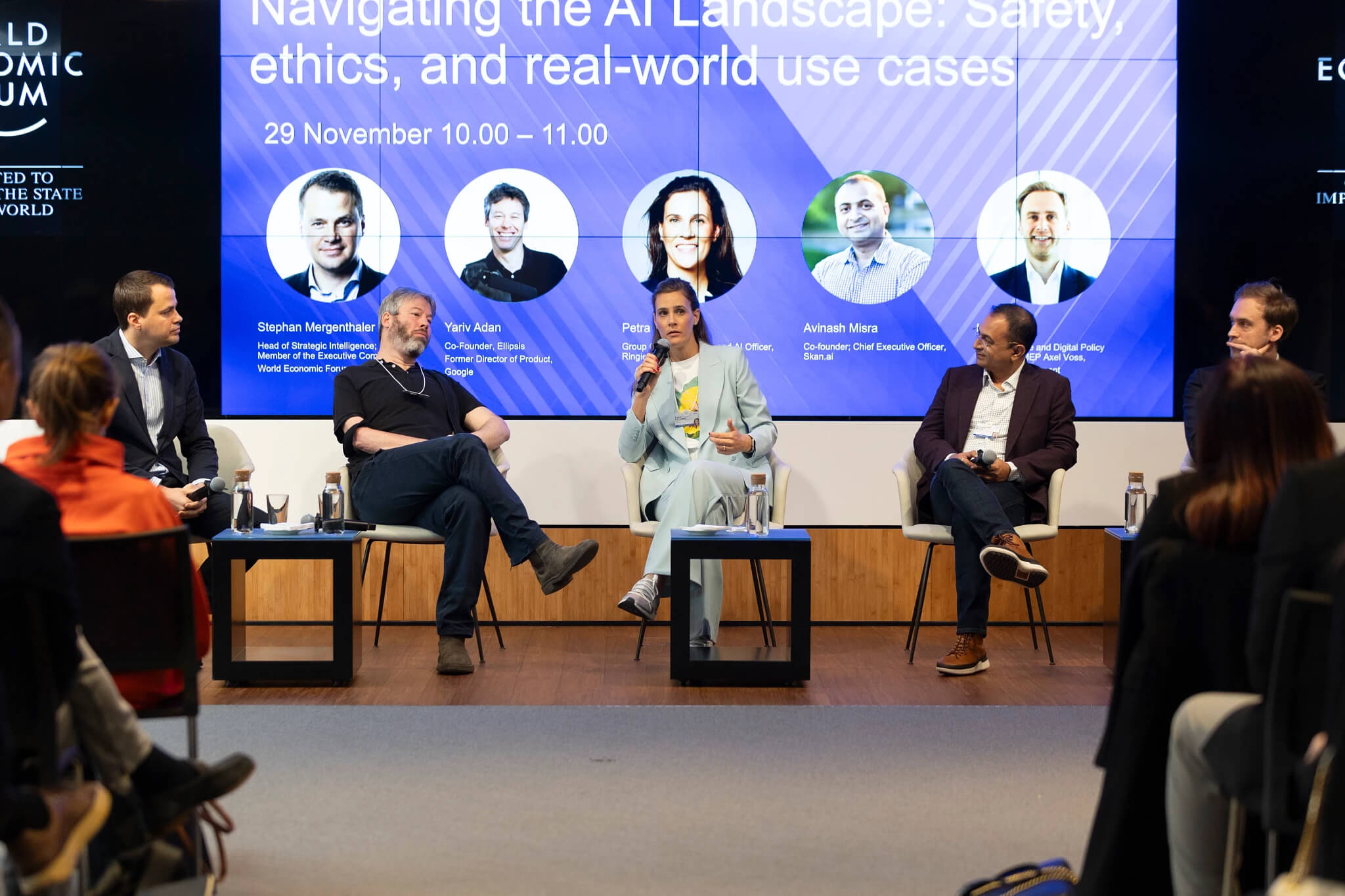When Avinash Misra, CEO and Co-Founder of Skan AI, joined a panel at the World Economic Forum’s New Champions Retreat in Geneva, the air was charged with excitement and pragmatism.
The panel’s theme—navigating AI’s evolving role in governance, ethics, and real-world application—set the stage for thought-provoking exchanges. But the discussion was more than a showcase of bold ideas; it was a reality check on how organizations reconcile AI's potential despite persistent misunderstanding.
One key insight Avinash brought back to our team was this:
"The greatest challenge in AI isn’t the algorithms; it’s the misconceptions that surround them."
Against a backdrop of falling leaves and the fading golden light of the year, the conversation was refreshingly down to earth. With the year drawing to a close, it was the perfect moment to grapple not only with what AI can do, but how it fits into the fabric of human decision-making and organizational life.

Breaking Down the Myths
One key takeaway came from fellow panelist, startup investor and ex-Googler, Yariv Adan.
The problem to overcome with AI isn’t about technology, it’s really about humans.
Yariv made an excellent point that while AI systems provide the ability to access information quickly, make better decisions and so on, the issue is that it doesn’t always align to the human side of the equation. In any organization it’s impossible to tell who is supposed to be making the decisions. On top of that, most organizations haven’t a clue what is going on inside their four walls. They are, in effect, flying blind.

AI has the power to reshape industries, but myths often cloud its adoption. Here are some of the most stubborn misconceptions discussed during the panel:
The “Black Box” Fallacy
Many believe AI systems are inherently opaque, making them unsuitable for highly regulated environments. However, modern AI emphasizes transparency and explainability. Today’s systems can produce audit trails that allow decisions to be scrutinized—a critical feature for ethical and regulatory compliance.
AI Replaces Humans
Another common myth is that AI eliminates human roles. In reality, AI - in this case Agentic AI - complements human expertise, surfacing insights that might otherwise go unnoticed. For example, Skan AI’s innovative customers use process intelligence to enhance—not replace—human decision-making, enabling compliance teams to focus on strategic initiatives rather than repetitive tasks.
These myths aren’t just hurdles; they are opportunities for companies to lead by example, showing that AI can be both trustworthy and transformative.
Governance Before Regulation
A recurring theme during the discussion was the need for proactive governance.
Kai Zenner, Head of Office and Digital Policy Adviser in the European Parliament, offered a sobering perspective on the governance of AI. He emphasized that while AI is advancing at an extraordinary pace, the legislative process requires careful deliberation to ensure policies serve the best interests of leaders, employees, and society at large.

Zenner highlighted the importance of patience in navigating this rapidly evolving landscape, where the urgency to innovate must be balanced with thoughtful regulation. His call for proactive governance echoed a recurring theme: organizations cannot afford to wait for legislation to catch up—they must take the lead in establishing ethical, transparent, and accountable frameworks for AI adoption.
Skan AI’s innovative customers are already ahead of the curve, setting benchmarks for responsible AI use. They understand that governance isn’t just about compliance—it’s about creating a culture where technology and ethics coexist seamlessly.
The Human Element in AI
Perhaps the most compelling insight from the panel was a reminder that AI, at its core, is about amplifying human potential. AI is not an end in itself but a tool that helps organizations see more clearly, act more decisively, and create more impact.
As Avinash shared during the panel,
"The lack of visibility into how work actually gets done is one of the biggest barriers to transformation. AI bridges that gap, empowering teams to work smarter, not harder."
Finally, we heard from Ringier Group Chief Innovation and AI Officer and co-panelist, Petra Ehmann, who explained why experimentation is key, especially for more established long-standing companies.
This goes beyond AI implementation, and reminded us that even established organizations need a healthy amount of experimentation to evolve.
What’s Next?
The dialogue at the World Economic Forum underscored that AI isn’t just a technological challenge—it’s a cultural one. Organizations that address the myths and fears surrounding AI head-on will be the ones to unlock its full potential. At Skan AI, we’re inspired by the ingenuity of our customers, who prove every day that AI can transform compliance, governance, and beyond when approached thoughtfully.
As we close out the year, conversations like this remind us why we do what we do.
AI transcends simply automating processes; it’s about reimagining possibilities and creating a future where technology uplifts humanity.
A special thank you to the World Economic Forum for hosting such a timely discussion and to the brilliant minds who joined Avinash on this journey. The myths won’t dismantle themselves, but together we’re building a clearer path forward.

